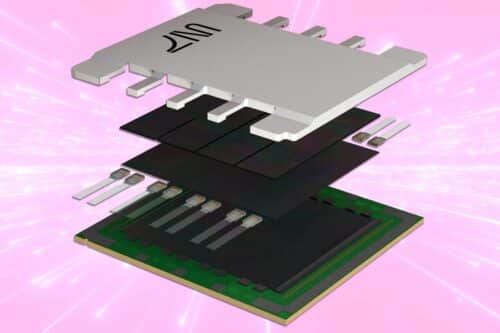The breakthrough in computing is a leap toward light-speed processing, revolutionising data handling and pushing the boundaries of technology to new heights.

Credits:Image: Courtesy of the researchers. Edited by MIT News
The shrinking of transistors, which enabled the era of ubiquitous computing, is reaching its limits, challenging the continuation of Moore’s Law and Dennard’s Scaling. This comes as the demand for computing power, driven by the rise of artificial intelligence, continues to grow.
Lightmatter, founded by three MIT alums, is advancing computing by reimagining the chip’s core. By using both light and electricity for data processing and transport, the company aims for more efficient operations. Its first products, an artificial intelligence chip and an interconnect for data transfer, utilise photons and electrons. Lightmatter is showcasing its technology with major tech companies, hoping to reduce the significant energy demand for data centres and AI models.
Lightmatter’s Envise chip integrates the strengths of electrons, such as memory, with the advantages of light, such as executing the extensive matrix multiplications required by deep-learning models.
Passage leverages light’s low latency and high bandwidth to connect processors, similar to how fibre optic cables transmit data over long distances. It also allows chips as large as wafers to function as a single processor, which is crucial for operating the large server farms that support cloud computing and AI systems like ChatGPT.
Both products aim to improve computing’s energy efficiency, which Harris believes is essential to meet increasing demand without significantly raising power consumption.
Lightmatter is collaborating with chipmakers and cloud service providers for widespread deployment. The team points out that existing semiconductor facilities can manufacture the company’s silicon-based equipment without significant process alterations.
The company’s bold plans aim to pave a new way for computing, with significant potential environmental and economic impacts.
“The two problems we are solving are ‘How do chips talk?’ and ‘How do you do these [AI] calculations?'” Lightmatter co-founder and CEO Nicholas Harris, PhD ’17, says. “Our first two products, Envise and Passage, address both questions.”






